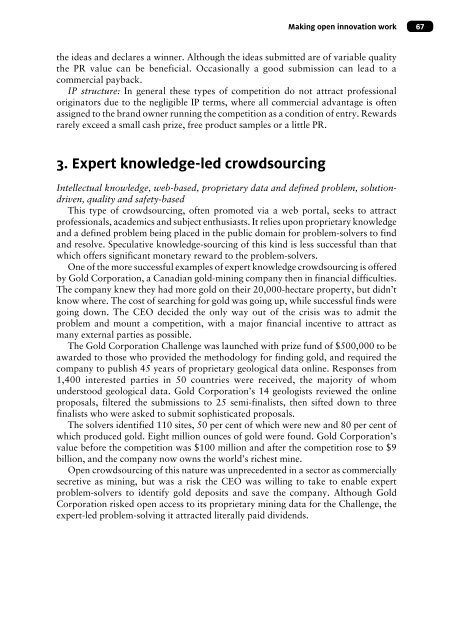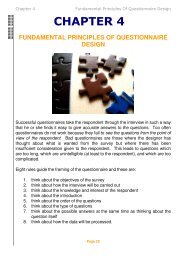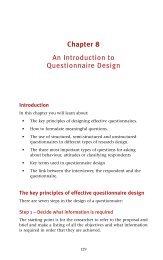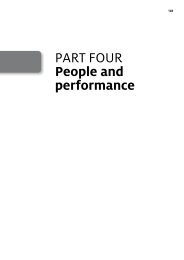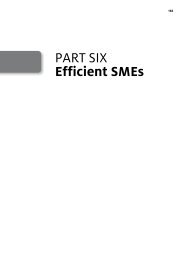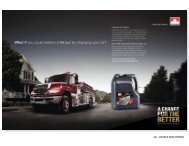The growing business handbook : inspiration and advice ... - Sparkler
The growing business handbook : inspiration and advice ... - Sparkler
The growing business handbook : inspiration and advice ... - Sparkler
Create successful ePaper yourself
Turn your PDF publications into a flip-book with our unique Google optimized e-Paper software.
Making open innovation work<br />
67<br />
the ideas <strong>and</strong> declares a winner. Although the ideas submitted are of variable quality<br />
the PR value can be beneficial. Occasionally a good submission can lead to a<br />
commercial payback.<br />
IP structure: In general these types of competition do not attract professional<br />
originators due to the negligible IP terms, where all commercial advantage is often<br />
assigned to the br<strong>and</strong> owner running the competition as a condition of entry. Rewards<br />
rarely exceed a small cash prize, free product samples or a little PR.<br />
3. Expert knowledge-led crowdsourcing<br />
Intellectual knowledge, web-based, proprietary data <strong>and</strong> defined problem, solutiondriven,<br />
quality <strong>and</strong> safety-based<br />
This type of crowdsourcing, often promoted via a web portal, seeks to attract<br />
professionals, academics <strong>and</strong> subject enthusiasts. It relies upon proprietary knowledge<br />
<strong>and</strong> a defined problem being placed in the public domain for problem-solvers to find<br />
<strong>and</strong> resolve. Speculative knowledge-sourcing of this kind is less successful than that<br />
which offers significant monetary reward to the problem-solvers.<br />
One of the more successful examples of expert knowledge crowdsourcing is offered<br />
by Gold Corporation, a Canadian gold-mining company then in financial difficulties.<br />
<strong>The</strong> company knew they had more gold on their 20,000-hectare property, but didn’t<br />
know where. <strong>The</strong> cost of searching for gold was going up, while successful finds were<br />
going down. <strong>The</strong> CEO decided the only way out of the crisis was to admit the<br />
problem <strong>and</strong> mount a competition, with a major financial incentive to attract as<br />
many external parties as possible.<br />
<strong>The</strong> Gold Corporation Challenge was launched with prize fund of $500,000 to be<br />
awarded to those who provided the methodology for finding gold, <strong>and</strong> required the<br />
company to publish 45 years of proprietary geological data online. Responses from<br />
1,400 interested parties in 50 countries were received, the majority of whom<br />
understood geological data. Gold Corporation’s 14 geologists reviewed the online<br />
proposals, filtered the submissions to 25 semi-finalists, then sifted down to three<br />
finalists who were asked to submit sophisticated proposals.<br />
<strong>The</strong> solvers identified 110 sites, 50 per cent of which were new <strong>and</strong> 80 per cent of<br />
which produced gold. Eight million ounces of gold were found. Gold Corporation’s<br />
value before the competition was $100 million <strong>and</strong> after the competition rose to $9<br />
billion, <strong>and</strong> the company now owns the world’s richest mine.<br />
Open crowdsourcing of this nature was unprecedented in a sector as commercially<br />
secretive as mining, but was a risk the CEO was willing to take to enable expert<br />
problem-solvers to identify gold deposits <strong>and</strong> save the company. Although Gold<br />
Corporation risked open access to its proprietary mining data for the Challenge, the<br />
expert-led problem-solving it attracted literally paid dividends.


